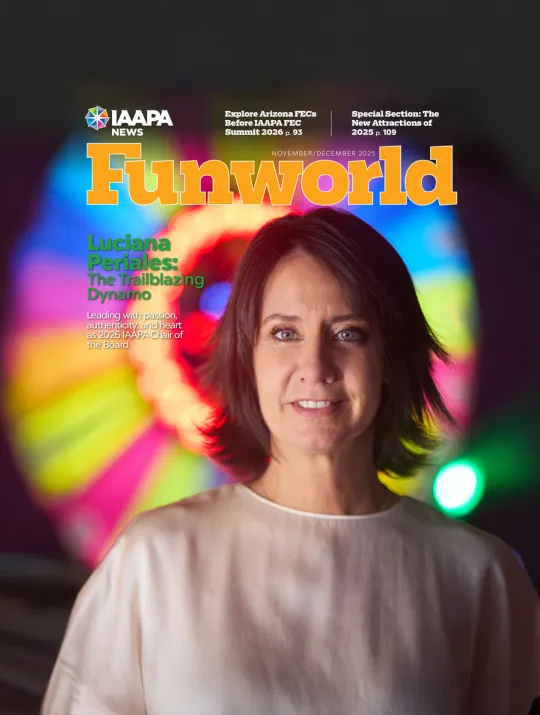- My Membership
- My Membership
- Connections
- Events
- Safety and Security
- Education and Research
My Membership
All Member BenefitsWhy join IAAPA?
- Access to Exclusive Industry News and Insights
- Networking and Connection Opportunities
- Educational and Professional Development Resources
- Discounted Registration for IAAPA’s world famous Expo Events and free EDUSessions
- My Membership
My Membership
Why join IAAPA?
- Access to Exclusive Industry News and Insights
- Networking and Connection Opportunities
- Educational and Professional Development Resources
- Discounted Registration for IAAPA’s world famous Expo Events and free EDUSessions
- My Membership
- Connections
- Events
- Safety and Security
- Education and Research





 The Official Magazine of IAAPA
The Official Magazine of IAAPA